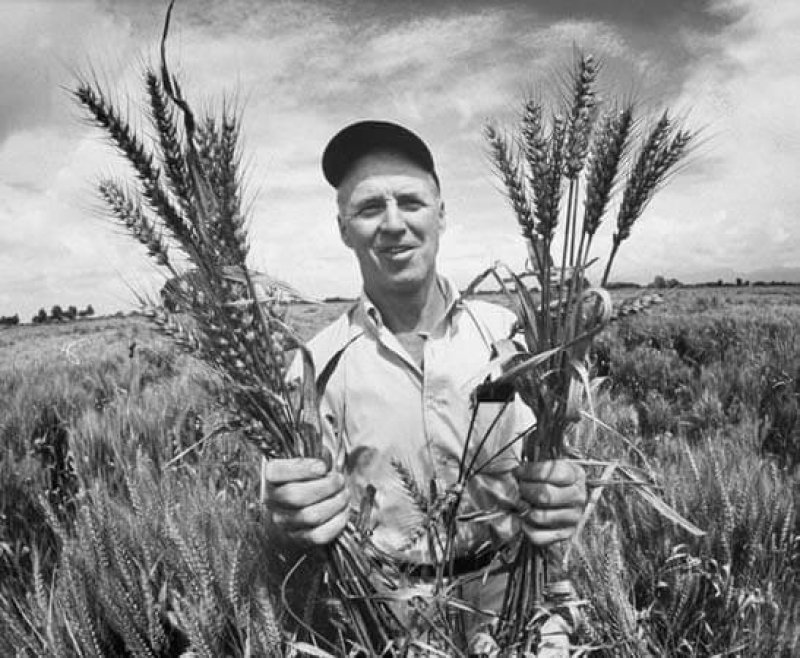Norman Borlaug’s Green Revolution saved an estimated billion people from starvation, but critics contend his work brought severe environmental and social consequences to the developing world. Are they right? A new study says gene editing is perfectly compatible with agroecology. What has 40 years of coronavirus research revealed about the ongoing COVID-19 pandemic, and should we let people catch the virus to develop herd immunity?
Podcast: Play in new window | Download
Subscribe: RSS
Join geneticist Kevin Folta and GLP editor Cameron English on this episode of Science Facts and Fallacies as they break down these latest stories from the GLP:
Coronaviruses aren’t new. Scientists have been investigating them for nearly 40 years, and their work has yielded important discoveries about this mysterious family of viruses that kills many people while leaving others unharmed. What have we learned, and what are we still hoping to find out as we brace ourselves for future outbreaks?
The COVID-19 pandemic has put the world in an untenable situation. Locking down the global economy has helped “flatten the curve,” but it’s also jeopardized the livelihoods of millions of people, leading many commentators to ask if social distancing and shelter in place were worth the devastating cost. The only way to truly end the pandemic is to develop herd immunity to the virus, the point at which most of the population can’t be infected.
Absent a vaccine, however, we only achieve widespread immunity by allowing the virus to infect lots of people—some of whom will get sick and die. How do we responsibly work our way toward herd immunity so as to minimize the casualties? With experts still speculating about whether surviving infection provides immunity, is this approach even possible?
Plant pathologist Norman Borlaug is often lauded as a hero for boosting wheat yields in the developing world and saving as many as a billion people from a starvation-induced early death. But his critics in the environmental movement allege Borlaug’s work disrupted India’s social fabric and polluted the environment on a previously unseen scale. Do these consequences counteract the life-saving innovations Borlaug introduced into agriculture?
Popular understanding dictates that agroecology (farming techniques meant to promote sustainable food production) and genetic engineering technology are mutually exclusive. As it turns out, there’s no scientific justification for this segregation between sustainable farming practices and the tools of biotechnology, say researchers from Wageningen University & Research in the Netherlands. Gene-editing techniques such as CRISPR Cas-9 can in fact help farmers grow more food while reducing their environmental footprint.
The real challenge is making that case to agroecology advocates, many of whom see genetic engineering as a tool of powerful biotech companies intent on taking control of the global food supply. Can these skeptics be convinced to embrace technology for the good of the planet?
Kevin M. Folta is a professor in the Horticultural Sciences Department at the University of Florida. Follow Professor Folta on Twitter @kevinfolta
Cameron J. English is the GLP’s senior agricultural genetics and special projects editor. BIO. Follow him on Twitter @camjenglish































